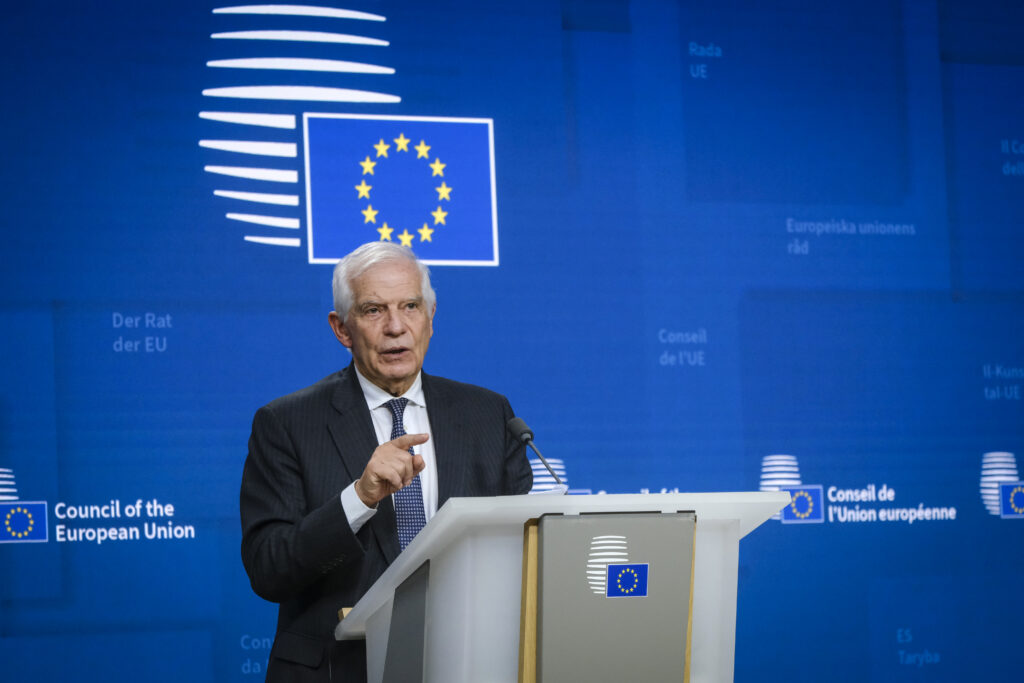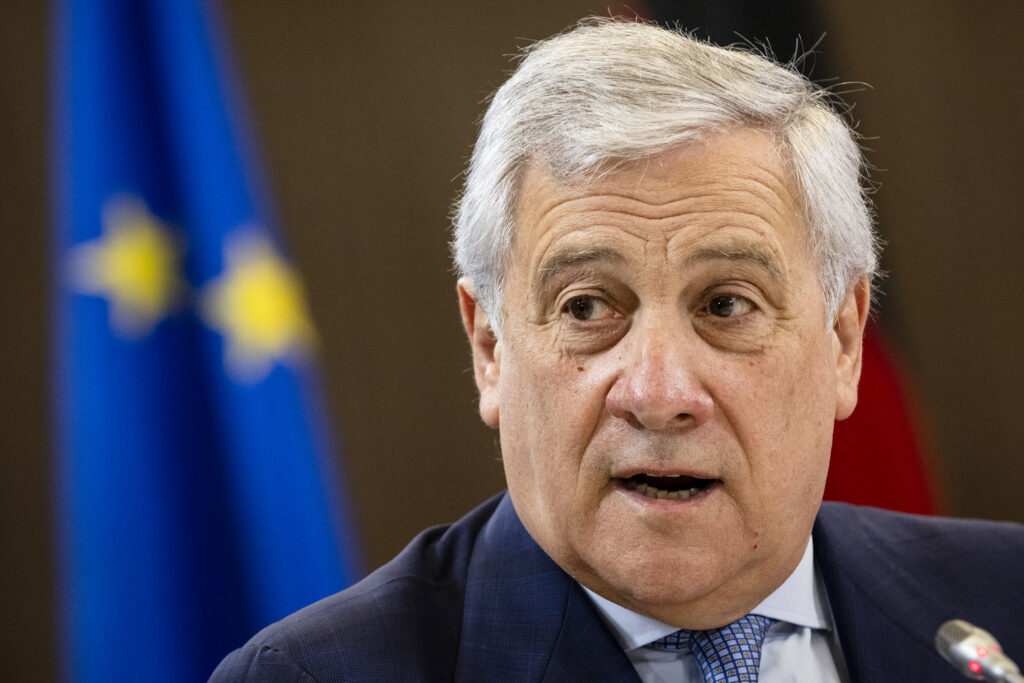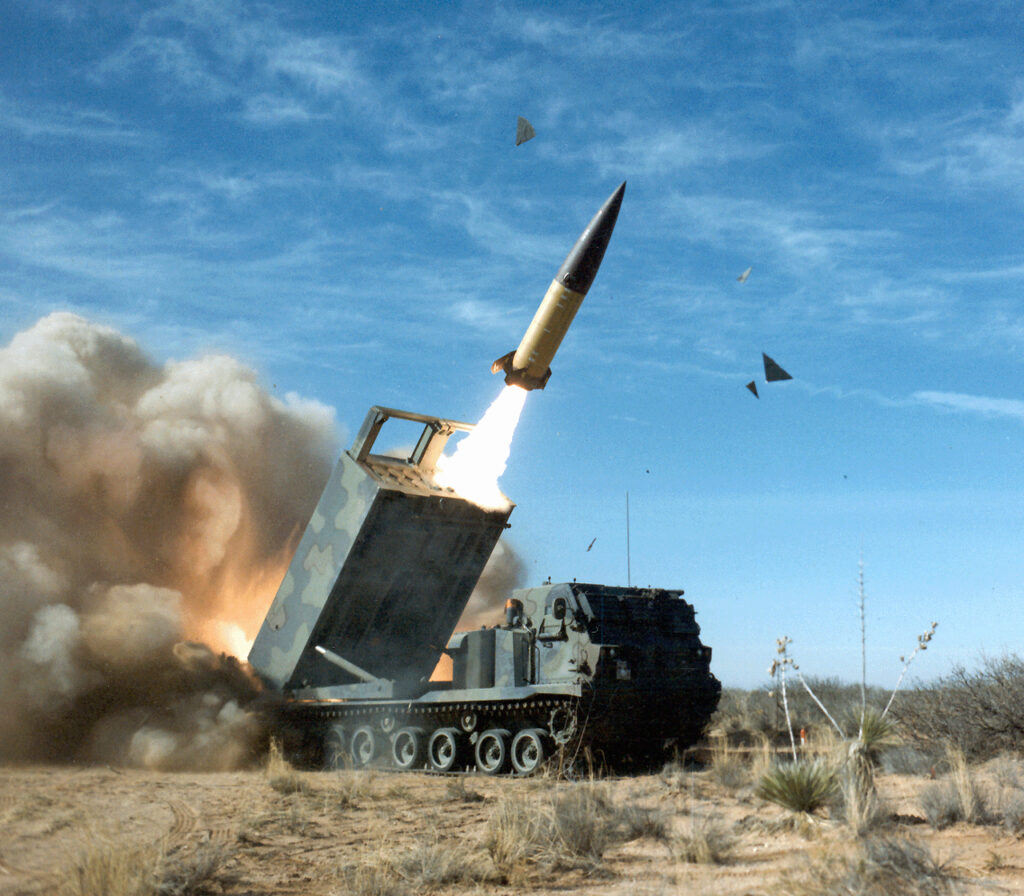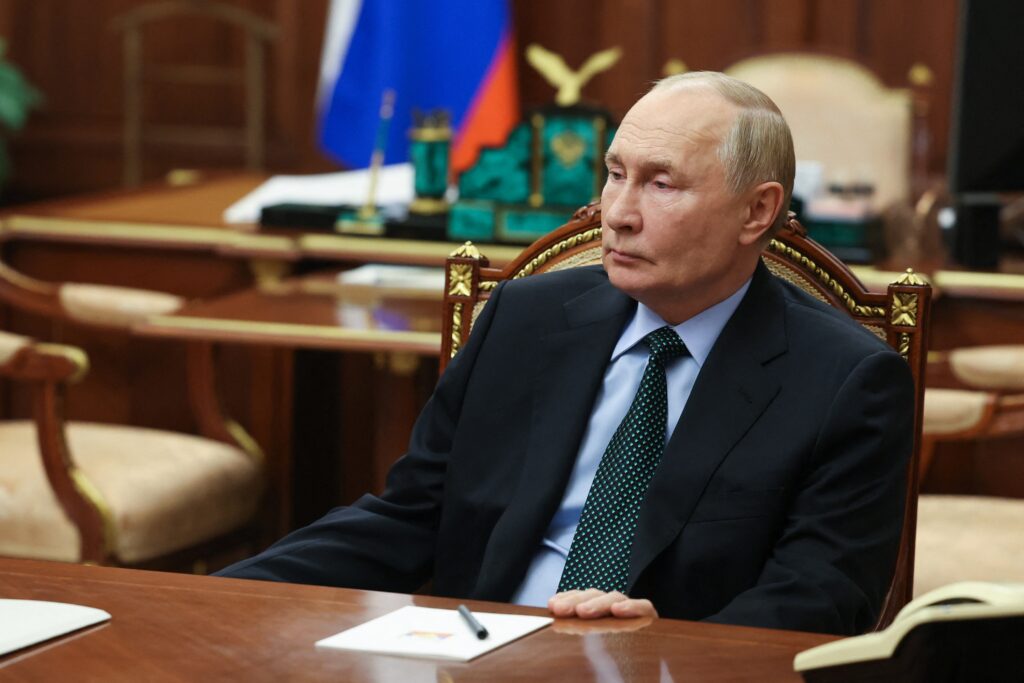Brussels – Following one of the worst Russian missile attacks on Ukraine since the start of the war, the Foreign Ministers of the Twenty-Seven met in Brussels this morning (Nov. 18) to discuss, among other things, how to ensure European support for the attacked country, especially in light of Donald Trump‘s recent re-election to the White House. While the EU finds it hard to maintain its promises on military aid to Kyiv, the specter looms in the control room that US supplies could eventually come to a halt and the possibility of the new president could force his Ukrainian counterpart, Volodymyr Zelensky, to accept a peace that benefits Moscow. However, member states remain divided over how to support the former Soviet republic.
Green light to use ATACMS in Russia
The week started with the announcement by outgoing US president Joe Biden that Washington authorizes the Kyiv military to use ATACMS (long-range missiles capable of reaching targets 300 kilometers away) to attack the enemy on its territory. The White House said it was not a blank check, but it would be evaluated case-by-case whenever Ukraine needs to hit military targets beyond its borders.
Biden hopes to dissuade North Korea from sending additional troops into the Federation, as 10,000 Pyongyang troops are taking part in the Russian counteroffensive in the Kursk oblast (which the Ukrainians penetrated last August). Yesterday’s decision represents a major shift in Washington’s approach, just two months before the official inauguration of the second Trump presidency.
The High Representative for Foreign Policy, Josep Borrell, who chaired his probably last Foreign Affairs Council in Brussels, welcomed the move of the White House: “In my opinion, the Ukrainians should be able to use weapons not only to repel attacks but also to strike at where these attacks originate,” he said, reiterating his position. However, as the EU diplomacy chief reminded us, the issue is national and up to the chancelleries.

“Working for Peace”
Decidedly less enthusiastic was Italian Foreign Minister Antonio Tajani: “We will continue to follow the line we have always followed,” he told reporters, which is “that of using our weapons inside Ukrainian territory.” The Forza Italia vice-premier reminded that “we all have to work for peace” (a just peace that “does not mean the defeat of Ukraine”), but certainly “we must always leave a space open for diplomacy.”
However, according to the Italian minister, the phone call between German Chancellor Olaf Scholz and Russian President Vladimir Putin on Friday – in which he asked his interlocutor to withdraw troops from Ukraine and sit at the table to negotiate a “just peace” only to be told that any negotiations will have to take into account the “new territorial realities” (i.e., the occupation of about one-fifth of Ukrainian territory) – did not “achieve much effect.” According to Tajani, what is needed is “a united and cohesive choice on the part of all the interlocutors” that should lead to “a peace conference” along the lines of the one held in Switzerland. He also stressed that “you cannot think of negotiating without Russia.”
The Foreign Minister will meet his counterparts from France, Germany, United Kingdom, and Poland (and the future High Representative Kaja Kallas) in Warsaw on Tuesday (Nov. 19) in the so-called “Weimar plus” format, a forum to discuss the European position on the war in Ukraine, which Poland’s foreign minister, Radoslaw Sikorski, defined as “the most important talks” on the conflict.

Internal Divisions
Even in the other 27 member states, the positions are not unanimous. Paris is possibilistic about the using Western weapons on Russian territory: “We said openly that this was an option we would consider,” said French Foreign Minister Jean-Noël Barrot. France and the UK have already supplied long-range missiles to Kiyv but have always maintained that they would not authorize their use beyond Ukraine’s borders until Washington did the same. Now, Biden’s move could turn the tables.
For the German government, it continues to be a no-go, refusing to send long-range Taurus missiles to Kyiv. “The German government was aware of Washington’s decision to allow Ukraine to use long-range missiles against Russia,” said Wolfgang Buechner, the chancellor’s spokesman, but “this does not change the position” of the executive. Instead, Berlin announced the supply of a large batch of kamikaze drones (about 4 thousand units), with delivery expected to begin in December.
For the Lithuanian foreign minister, Gabrielius Landsbergis, the strategy followed by the EU in these thousand days of war “has failed. Peace through de-escalation is a failed strategy,” he told reporters, and at this point, “we need a strategy that comes from strength,” as both Kyiv as the Baltic states have long called for. In other words, it is “a true removal of all restrictions and an actual winning strategy,” Landsbergis pressed, to ensure “effective support for Ukraine that would help Ukraine win.”

His Estonian counterpart, Margus Tsahkna, made a similar statement, saying that Putin “has no intention of changing course.” Therefore, “no phone call strengthens our position” on the side of Ukraine against Russian aggression. “Tomorrow will be a thousand days since the start of the invasion,” he continued, but “actually it’s four thousand since 2014,” when Moscow illegally occupied Crimea and stationed its troops in Donbas. “It is a good thing, if true, that the US has lifted restrictions” on the use of ATACMS, something Tallinn had been calling for “from the very beginning” of the invasion in February 2022.
Chinese drones and Russian assets
Today’s Foreign Affairs Council also spoke of other issues related to Ukraine. There is the issue of Chinese drones: intelligence sources in Brussels are increasingly “convinced” that next-generation drones are assembled in the People’s Republic and then transferred to Russia for use in Ukraine.
If this were confirmed, Tajani warned, “it would be a big mistake,” as it would constitute yet another escalation of the conflict: “No escalation is also a message to China.” At the moment, the investigations are still ongoing, European officials reported last week, but if confirmed, there will be unspecified “concrete consequences” for Beijing (the extreme ratio would be sanctions, such as those Brussels has already imposed against Iran and North Korea for supplying arms to the Federation).

There is also the issue of financial aid to Kyiv. In the European Peace Facility (EPF), Hungary is blocking 6.6 billion euros. Brussels is devising a way to bypass Budapest’s veto and get EU funds into Ukrainian coffers, perhaps by using a voluntary contribution mechanism. After the first 1.4 billion tranche last August, the EU would like to pay the second 1.9 billion check as early as next March but is still finalizing the concrete details of the disbursement. These are resources from the extraordinary interest (the famous extra-profits) generated by Russian assets frozen in Europe.
The Union is also aiming to deliver in Kyiv one million artillery shells (a target that should be met by year-end, eight months behind the original March deadline) and to train 75 thousand Ukrainian soldiers (for now, about 63 thousand were trained ) by the end of winter as part of the recently extended Eumam Ukraine mission until November 2026.
English version by the Translation Service of Withub






